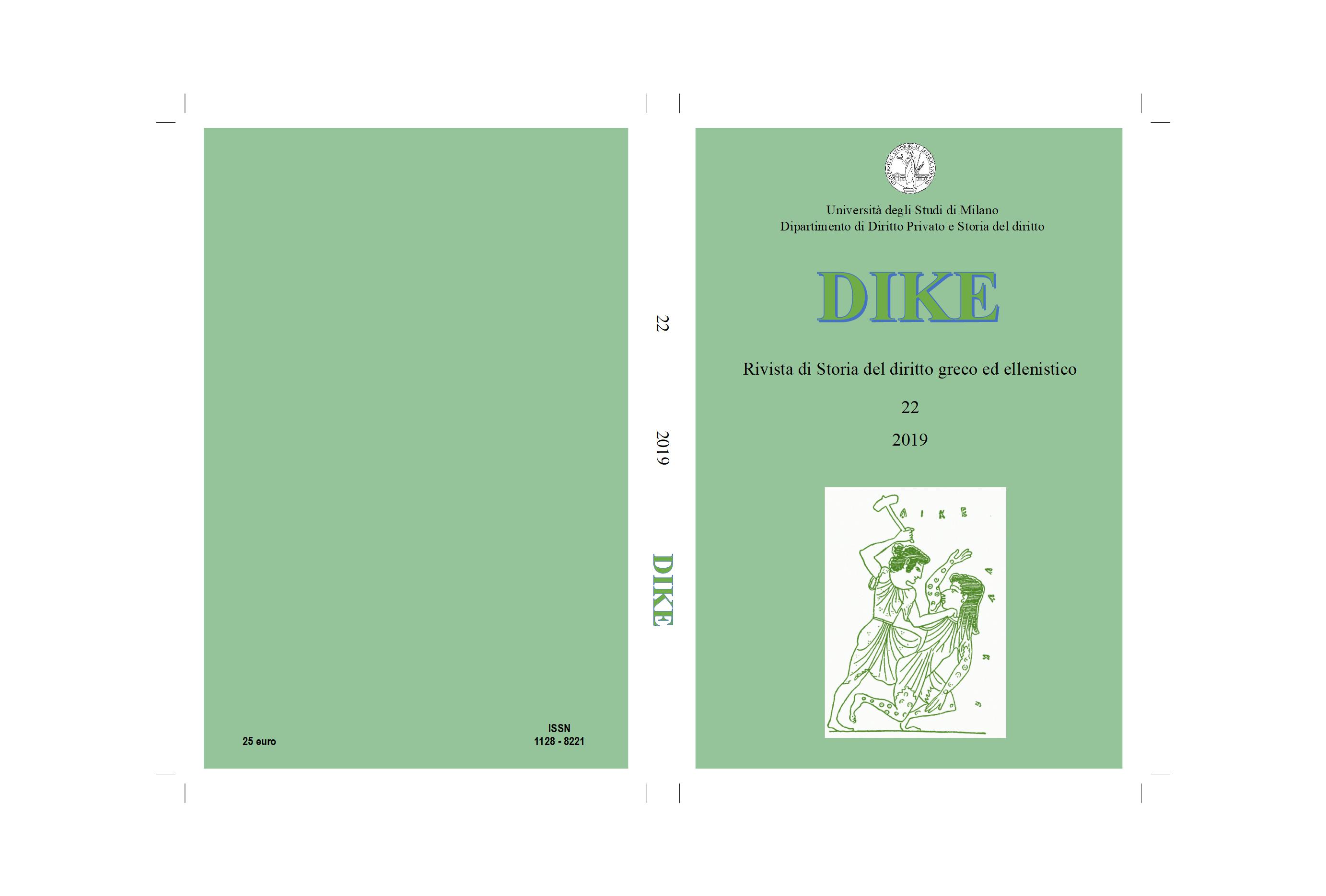AGRAPHOI NOMOI E POLITEIA NEL DISCORSO FUNEBRE DI PERICLE
DOI:
https://doi.org/10.13130/1128-8221/14394Abstract
Questo saggio esamina il ruolo degli agraphoi nomoi nell’orazione funebre di Pericle, in particolare nell’ambito della riflessione rivolta alla politeia degli Ateniesi. La scelta di Pericle di accentuare positivamente gli agraphoi nomoi e sottolineare la complementarità del rapporto fra i nomoi scritti e non scritti si discosta sia dalle regole del logos epitaphios sia dalle posizioni riconoscibili nel contesto del dibattito contemporaneo sul nomos, che tendenzialmente afferma la superiorità dell’agraphos nomos come espressione di un diritto universale e/o naturale. Diversamente, Pericle afferma che la politeia degli Ateniesi assegna uguale rilievo alle leggi scritte e non scritte e che gli agraphoi nomoi non hanno minore efficacia di quelle scritte relativamente al controllo sui comportamenti pubblici degli Ateniesi, particolarmente riguardo ai comportamenti irrispettosi di ciò che gli Ateniesi consideravano meritevole di rispetto (eusebeia). Gli agraphoi nomoi, secondo quanto qui si argomenta, individuano gli ethe intesi come norme consuetudinarie e regole appartenenti al campo del diritto sacrale.
Downloads
Dowloads
Pubblicato
Come citare
Fascicolo
Sezione
Licenza
- Gli autori mantengono i diritti sulla loro opera e cedono alla rivista il diritto di prima pubblicazione dell'opera, contemporaneamente licenziata sotto una Licenza Creative Commons - Attribuzione - Condividi allo stesso modo che permette ad altri di condividere l'opera indicando la paternità intellettuale e la prima pubblicazione su questa rivista.
- Gli autori possono aderire ad altri accordi di licenza non esclusiva per la distribuzione della versione dell'opera pubblicata (es. depositarla in un archivio istituzionale o pubblicarla in una monografia), a patto di indicare che la prima pubblicazione è avvenuta su questa rivista.
- Gli autori possono diffondere la loro opera online (es. in repository istituzionali o nel loro sito web) prima e durante il processo di submission, poichè può portare a scambi produttivi e aumentare le citazioni dell'opera pubblicata (Vedi The Effect of Open Access).





